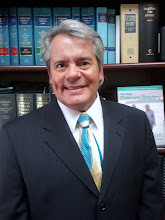When most people think of estate planning, they think about who will manage their estate and how their assets will be distributed and divided upon their death. However, a comprehensive estate plan does more than just provide a plan in case of death; it also provides a plan in case you become incapacitated or disabled, whether as a result of an illness, injury or other event. Over the course of the next few blog entries, we will cover some of the estate planning documents that can be used to provide a plan for possible incapacity, including the use of advance health care directives, general durable powers of attorney, and trusts. In this month’s blog we will discuss conservatorships and how the necessity for a conservatorship proceeding can be avoided through advance estate planning.
Why Plan for Incapacity?
Statistics show that people are living longer, but at some point many people lose the ability to make financial and/or medical decisions on their own behalf. Our office is frequently contacted by family members or friends who are concerned about the well-being of a loved one. Sometimes the person has become incapacitated as a result of a stroke or an illness, such as Alzheimer’s or another form of dementia. In other instances a young person has been incapacitated as a result of an accident, head injury, or even an assault. Incapacity can strike at any time and at any age.
What Happens If You Don’t Plan Ahead?
Unfortunately, with many of the inquiries we receive, the incapacitated person has not executed an advance health care directive (or its predecessor, the durable power of attorney for health care), nor have they executed a general durable power of attorney for financial matters. Since the person is now incapacitated, they lack the legal capacity necessary to properly execute these estate planning documents. The only option at this point is to petition the court for conservatorship of the person and/or conservatorship of the estate.
What is a Conservatorship?
A conservatorship a court proceeding where a judge appoints a person or entity (referred to as the “conservator”) to handle the care and/or finances of a person who is determined by the judge to be unable to care for themselves or their finances (this person is referred to as the “conservatee”). There are two types of conservatorship proceedings in California: 1) conservatorship of the person; and 2) conservatorship of the estate.
A conservator of the person arranges for the conservatee’s care and makes decisions regarding the conservatee’s housing, health care, food, clothing, housekeeping, transportation and recreation. A conservator of the estate is in charge of handling the conservatee’s finances. The conservator of the estate makes an inventory of all of the conservatee’s assets, ensures that the conservatee’s taxes are filed and bills are paid, makes a plan to make certain the conservatee’s financial needs are met, invests assets, and maintains financial records. It is permissible and often common for the conservator of the estate to be the same individual or entity as the conservator of the person.
The imposition of a conservatorship removes a person’s right to make certain decisions for himself or herself; it is viewed as an option of last resort and is only granted by the court when there are not any less restrictive alternatives available. Conservatorships are often criticized as being expensive, time-consuming, inflexible and cumbersome.
Seek Experienced Legal Representation
If you need assistance with estate planning or a conservatorship proceeding, contact the Casiano Law Firm for a complimentary telephone consultation with an experienced San Diego elder law and estate planning attorney.

